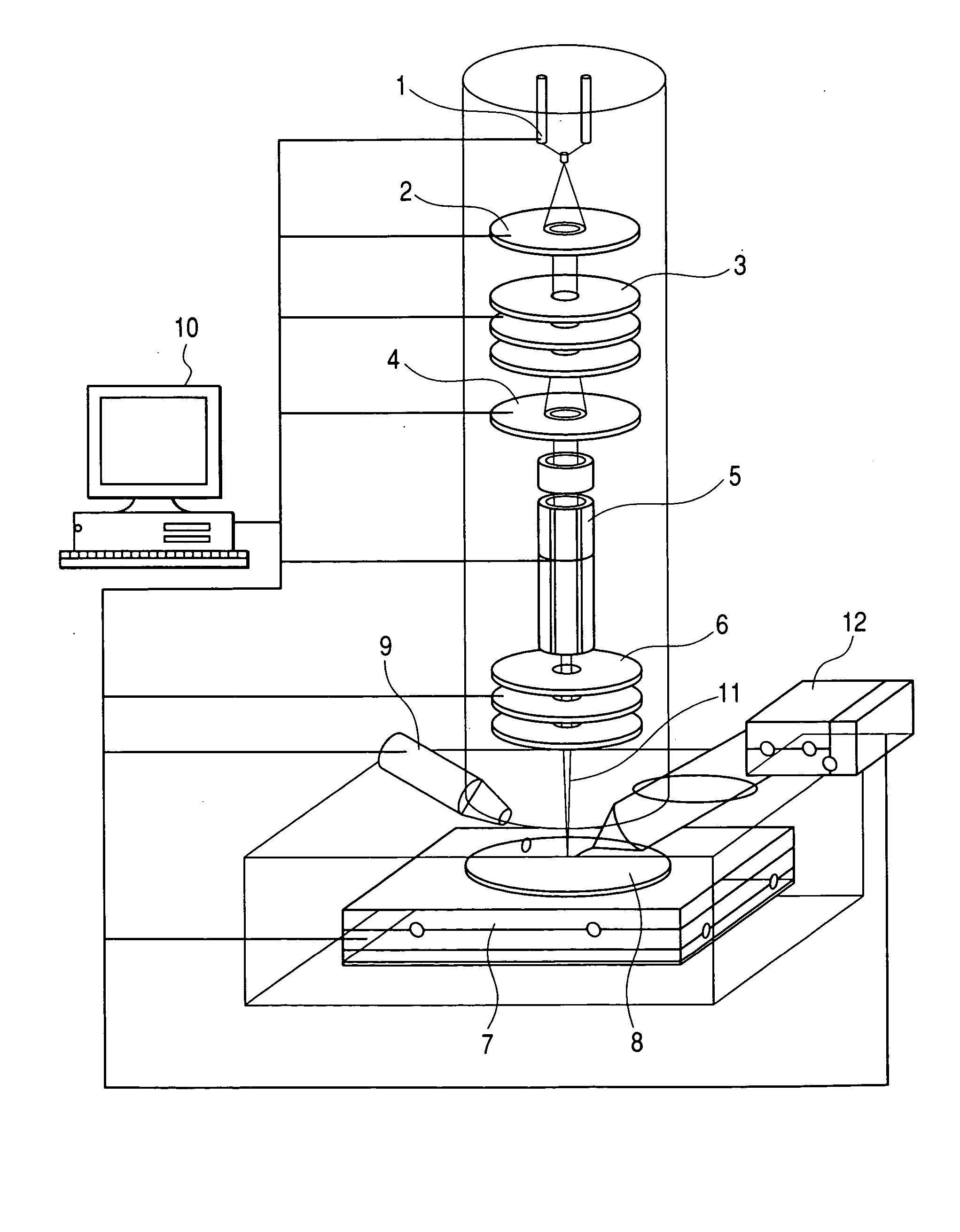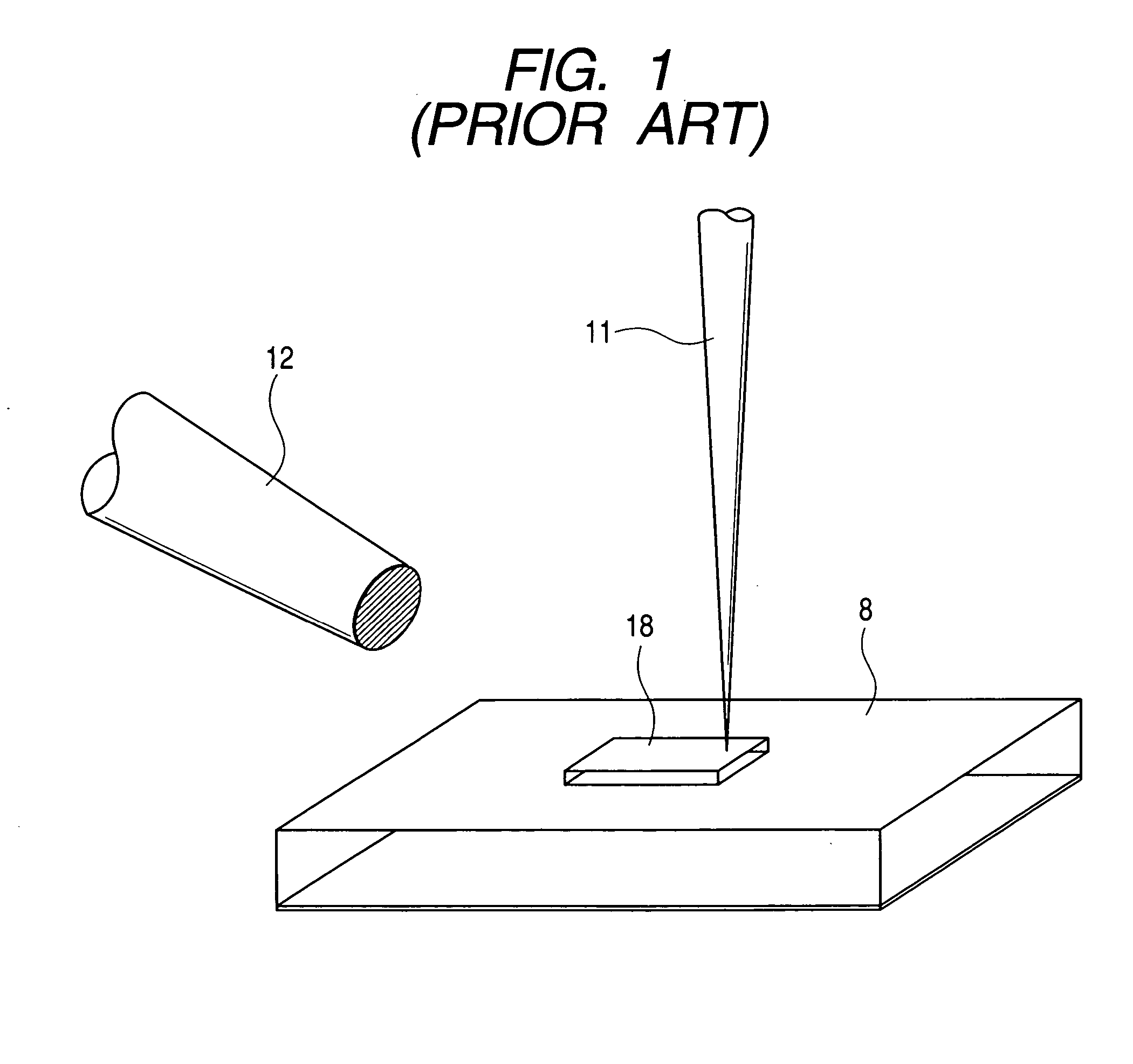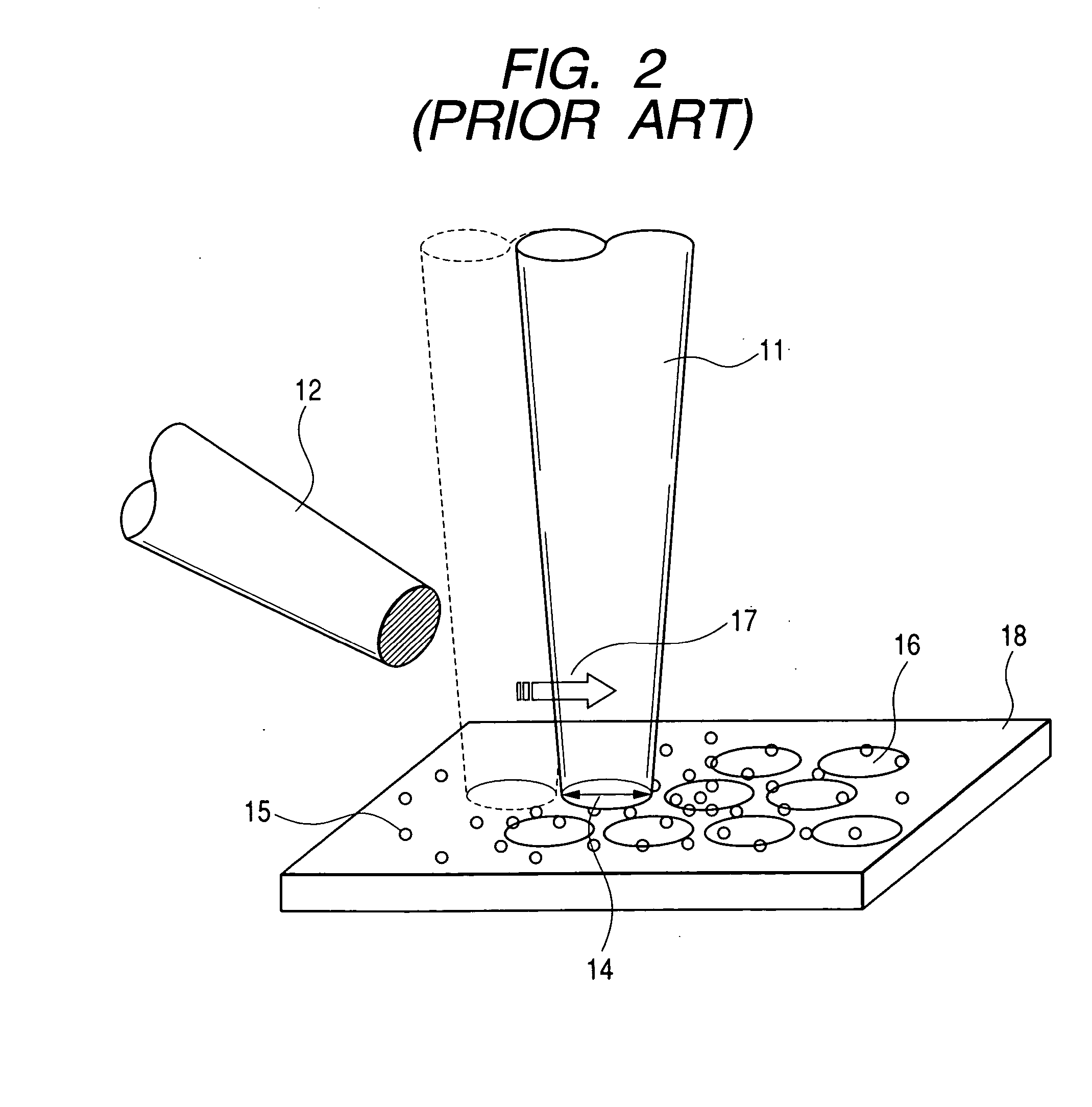Method for depositing a film using a charged particle beam, method for performing selective etching using the same, and charged particle beam equipment therefor
a technology of charged particle beam and film, which is applied in the field of method for depositing film using charged particle beam, method for performing selective etching using the same, and charged particle beam equipment therefor, can solve the problems of increasing processing time, small difference in etching rate on the substrate surface within the irradiation region of the fib, and inability to cope with the deposition rate and formation of uniform films
- Summary
- Abstract
- Description
- Claims
- Application Information
AI Technical Summary
Benefits of technology
Problems solved by technology
Method used
Image
Examples
first embodiment
FIG. 3 shows schematically how a beam spot of a charged particle beam moves in the scanning region, in accordance with an embodiment of the present invention. One circle corresponds to one beam spot, and the beam spot is scanned along the direction of the arrow. Here, the “beam spot” means the size of an area in the sample surface that is occupied by the charged particle beam incident thereon. The center of the beam spot is called a “scan lattice point,” and is designated by the numeral 16 in FIG. 3. The numeral 18 denotes a scanning region, and FIG. 3 shows an example in which the scan lattice points are arranged to form triangular lattices in the scanning region.
FIG. 4 shows the scan spacing dependence of the deposition rate, in accordance with an embodiment of the present invention. Here, the “scan spacing” means a distance between a certain scan lattice point and a scan lattice point most adjacent to the scan lattice point, and the “deposition rate” is the growth rate of a film...
second embodiment
In the first embodiment, the optimal values of the deposition parameters, Pd, Td, and d, were found by using the parameters decided from the fitting curves shown in FIGS. 7 through 9. The fitting curves shown in FIGS. 7 though 9 are curves that can be used for years fundamentally once they have been decided. However, there is a case where the fitting curve itself needs to be calibrated due to individual difference of equipment at the time of shipping, variation in deposition conditions, etc. Accordingly, in this embodiment, the fitting curves and a method for calibrating deposition parameters decided by the said curve will be described.
FIG. 13 shows the deposition-rate calibration screen that is displayed on a user interface screen of the control unit 10 included in the deposition equipment, in accordance with an embodiment of the present invention. The process and material 37 and the beam current 39 can be selected, individually. Here, the process means the kind of processing; in...
third embodiment
When a film is deposited by the FIB, there may be a case where a hollow is formed underneath a region where deposition is performed. This hollow is not a cavity in which nothing exists. Rather, the hollow formed is embedded with either a material whose material composition is the same as a film to be deposited or a reaction product of a material of the film to be deposited and a material forming the processed region. The reason for this embedded hollow is because the processed region is partly removed by a sputtering effect before the film is accumulated by the FIB and then the film is accumulated on it.
FIG. 18 shows how this process proceeds with a diagram showing the cross section of a deposition film, in accordance with an embodiment of the present invention. At a junction plane between the substrate 8 and the deposition film 13, a hollow is formed on the substrate surface by the FIB. When film deposition is done with Ga ions of 30 keV, the sputter depth between film and substr...
PUM
| Property | Measurement | Unit |
|---|---|---|
| size | aaaaa | aaaaa |
| time | aaaaa | aaaaa |
| deposition rate | aaaaa | aaaaa |
Abstract
Description
Claims
Application Information
 Login to View More
Login to View More - R&D
- Intellectual Property
- Life Sciences
- Materials
- Tech Scout
- Unparalleled Data Quality
- Higher Quality Content
- 60% Fewer Hallucinations
Browse by: Latest US Patents, China's latest patents, Technical Efficacy Thesaurus, Application Domain, Technology Topic, Popular Technical Reports.
© 2025 PatSnap. All rights reserved.Legal|Privacy policy|Modern Slavery Act Transparency Statement|Sitemap|About US| Contact US: help@patsnap.com



